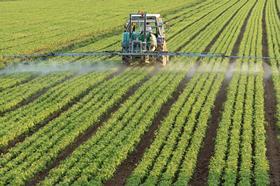
Farmers are increasingly dependent on an ‘unexamined network’ of contractors to survive which is misunderstood by the government, according to research.
A University of Exeter study revealed 87 per cent of farmers in the south west of England employ contractors for help with big projects such as hedge-cutting, silage making, sowing, drilling and pesticide application, with a fifth of farms surveyed saying they had increased their use of contractors over the past five years.
Rural policy researcher Dr Caroline Nye added that the labour shortage could get “much worse” if steps were not taken to encourage domestic workers back into agriculture.
Nye surveyed 1,200 farms in the South West, and also carried out longer interviews with 20 farmers, 17 farm workers and 8 contractors. One farmer said without the existence of contractors, “it would be impossible to farm” whilst another said “we couldn’t run without them”.
Contractors themselves often employ workers, and in some rural areas are a significant source of employment. Yet contractors are now reporting difficulties in finding suitably qualified staff, according to the university.
Dr Nye said: “There has been a focus on the impact of Brexit on access to migrant workers, but Government statistics have not fully recorded the role of agricultural contractors, and therefore miss the emergence of significant patterns occurring within the farm workforce. We have found contractors are now essential to agriculture, so planning for when Britain leaves the European Union must take this into account.
“There is a huge, unexamined network of farm contractors in South West agriculture, many of whom have crossed over from a farm worker or farmer position. Contractors describe themselves as invisible and misunderstood by the government and the public, despite their role being pivotal not only for the success of farming but also for employment provision in rural communities,” Nye added.
The majority of farmers interviewed for the study, carried out between 2016 and 2017 said contractors were crucial to the survival of their business, and without them their business as it stands would most likely collapse.
Some of the 232 farmers who said they were trying to hire staff described the process as being ‘really hard’ or a ‘struggle’. One said: “We’ve tried, we’ve advertised in the local [agricultural] college and things like that but we just can’t get anyone”.
Dr Nye said: “Even when a suitable candidate is identified, it ‘can take between two and four months to get somebody in place’ which in an industry such as farming can be debilitating. These shortages in suitably qualified candidates for more permanent positions appear to be a relatively recent phenomenon in the area but farmers are beginning to be fearful of what this might mean for the future of their farms.
“While it is important to deal with the labour crisis in the seasonal labour market, if the wider issue of labour shortages is not dealt with and more domestic workers encouraged back into agriculture as a career the extent of the labour crisis might be much worse than first thought.”



